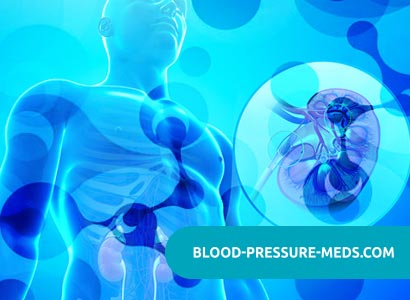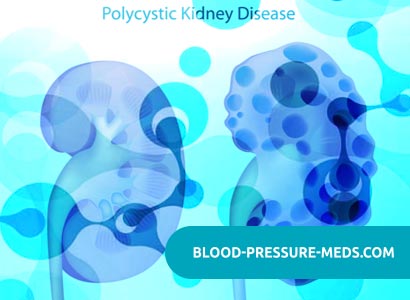Kidney Disease
Human kidneys are bean-shaped organs which extract and filters out the waste material from the blood and remove the harmful wastes such as uric acid in the form of urine. In addition to waste removal urine formation, human kidneys also aid other functions such as water balance, blood pressure regulation, acid regulation, and red blood cell regulation etc.
But due to unhealthy lifestyle patterns, and improper diet, our kidneys might become unhealthy and the risk of kidney diseases (both mild and chronic) increases. These kidney diseases hinder the functionality and performance of human kidneys and disturbs the normal mechanism of kidney functions. It is necessary to take preventive measure and precautions to avoid any serious complications of the kidneys.

The discussion in this article covers a different type of kidney diseases, their causes, and symptoms. It also explains how we can protect our kidneys from serious kidney diseases.
What are the different types of kidney diseases?
There are more than one kidney diseases. Some of them are acute, or chronic while some of the diseases are mild. Based on the severity of the diseases these kidney diseases are classified into acute, chronic or mild kidney diseases.
Chronic Kidney Disease – Chronic Kidney Disease also known as kidney failure is the most common form of kidney problems. Chronic kidney disease is a long-term condition. The condition or damage caused by chronic kidney disease does not improve over time. It hinders or suppresses the normal kidney functions and as a result of poor kidney function, other health problems begins.
Cause of Chronic Kidney Disease:
The major cause of chronic kidney disease or renal/kidney failure is hypertension or high blood pressure. Other factors may also play a role in developing kidney disease. Due to hypertension or high blood pressure, the pressure increases on the glomeruli.
Glomeruli or glomerulus is a cluster or group of tiny blood vessels which cleans and filter out the blood. But due to hypertension, these blood vessels start to get damaged over the time. As a result of this damage, the kidney functions decline and a point are reached where the kidney completely stops performing its functions.
Another reason for or cause of chronic kidney disease is diabetes. Diabetes is a situation in which our blood sugar level increases higher than the normal blood sugar. The result of elevated sugar levels in blood gradually damages the blood vessels of the kidneys over time. Damaged kidney vessels are unable to filter the blood properly and toxins stay in the blood.
Not only this, but chronic kidney disease also disable the kidneys to excrete out the wastes. Ultimately due to overloading of toxins and waste materials, the kidneys shut down and stop performing their functions at all.
Kidney stones – Formation of stones inside the renal tube or kidney is another common kidney problem. Formation of kidney stones in the kidney is very painful and sometimes it causes injury and internal bleeding inside the kidney. The kidney stones vary in size. If the stones are smaller in size they may not obstruct the passage of waste and urine but if the stones are in bigger size, it would obstruct the passage of blood as well as urine. As a result of this obstruction, there are chances of mixing of urine with blood which is a fatal condition.
Cause of Kidney Stones:
Kidney stones are formed due to the deposition of certain minerals and other substances in the kidney, kidney stones are formed. These substances and minerals come with blood in the kidney and crystallize inside the kidney into solid stone-like mass. Formation of kidney stones is a result of poor diet and lack of sufficient water level.
Glomerulonephritis – It is kidney disease which causes inflammation in the glomerulus or glomeruli. The inflammation of the glomeruli obstructs and reduces the blood filtration rate of the kidneys.
Causes of Glomerulonephritis:
Excessive illicit drugs, use of strong medication, congenital abnormalities, which occurs during or shortly after birth or infection both viral and bacteria can cause inflammation of the glomeruli.
Glomerulonephritis can be caused by infections, drugs, or congenital abnormalities (disorders that occur during or shortly after birth). It often gets better on its own.
Polycystic kidney disease – Polycystic Kidney Disease is a genetic kidney disorder. In this disease, a number of small sacs filled with fluid or cysts are formed or grown inside the kidneys. If the cysts are formed in both kidneys, it is an alarming sign for kidney failure. But if the cysts are formed in one of the kidneys, it’s not very harmful because sometimes formation of kidney cysts is common. But polycystic kidney disease is different from normal kidney cysts.
The cysts formed due to polycystic kidney syndrome effects the functions of kidneys and disturb the urinary and excretion system.
Urinary tract infections – Urinary Tract Infections or UTIs are usually the kidney infections which are mild and not very serious. The site of UTIs is the bladder and urethra. Although UTIs are not very harmful if not treated UTIs can spread to the kidneys and cause kidney failure.
UTIs may cause a burning sensation during urination or change in amount or color of urine. The disease or infection is treatable with medications and can be cured.
Cause:
Urinary Tract Infections (UTIs) are caused by bacteria or other infectious micro-organisms.
What are the symptoms of Kidney Disease?
Usually, the signs and symptoms of kidney disease are similar in all situations but they might differ from person to person. Kidney symptoms are classified into two categories: the mild or common symptoms and severe and chronic signs and symptoms.

The common symptoms of kidneys diseases include:
- fatigue
- difficulty concentrating
- trouble sleeping
- poor appetite
- muscle cramping
- swollen feet/ankles
- puffiness around the eyes in the morning
- dry, scaly skin
- frequent urination, especially late at night
In addition to the above symptoms and signs, there are few more signs and symptoms for kidney diseases. these symptoms and signs are considered as severe symptoms and might indicate chronic or acute kidney disease.
- nausea
- vomiting
- changes in urine output
- fluid retention
- anemia - a decrease in red blood cells
- decreased sex drive
- hyperkalemia - a sudden rise in potassium levels
- inflammation of the pericardium
Risk Factors That Could Develop Kidney Disease:
There are certain factors which increase the risk of kidney disease leading to kidney failure. These risk factors are listed below:
- Diabetes – According to studies, diabetic people are more susceptible to get kidney diseases. The result of a survey has shown that 44 percent of kidney failure or kidney diseases cases were f people who already had diabetes.
- High Blood Pressure – Hypertension or high blood pressure exerts increased pressure on kidney veins and other blood vessels. As a result, the blood vessels damages and it develops kidney diseases.
- Personal or family history of acute or chronic kidney disease
- Age – The risk of kidney diseases, especially kidney failure, is higher in older people.
- Insufficient Water Intake – Our kidneys require more water as compared to any other organ. Because through kidneys, waste and toxic substances are removed from the blood. And to excrete these harmful toxic wastes, kidneys requires water. But the unavailability of sufficient water can increase the risk of kidney diseases especially the kidney stones and kidney failure.
Treatment of Kidney Disease:
The treatment of kidney stones is possible today. Kidneys diseases could be treated both with medications and surgeries. The method o treatment varies for different kidney disease. Also, the treatment is determined on the basis of disease severity, age and other medical conditions of the person.
Drugs and Medications – Mild kidney diseases such as kidney stones, Glomerulonephritis, and urinary tract infections can be treated and cured with drugs and medications. In certain cases, medication is also used for treating chronic kidney disease.
The medications or drugs used for treating kidney diseases includes angiotensin-converting enzyme (ACE) inhibitors, such as lisinopril and ramipril, or angiotensin receptor blockers (ARBs), such as irbesartan and olmesartan.
The doctor may also prescribe some of the kidney patients with cholesterol drugs such as simvastatin. In the case of kidney swelling, the doctor’s may also prescribe drugs for treating anemia or swelling.
Kidney Transplant – Removal of the damaged or failed kidney with a healthy kidney. The kidney transplant is usually used to cure the patients whose both kidneys are failed.
Dialysis – Chronic kidney disease or kidney failure could be treated using two types of dialysis: Hemodialysis or Peritoneal Dialysis.
Hemodialysis – In this form of dialysis, a dialyzer or dialysis machine is used to filter the blood from toxic and ate materials. The blood is pumped through the dialyzer through a tube and the machine extracts the wastes and other toxic substances from the blood. The filtered blood is returned to the body via another tube. Before starting the hemodialysis, arteriovenous (AV) fistula is created with the help of surgery weeks before. Its created by connecting an artery and a vein beneath the skin usually in the forearm. The vein pumps the unfiltered blood into the machine while filtered blood enters the body via the artery.
Peritoneal dialysis - Peritoneal dialysis is an artificial kidney which is used in case of kidney failure. it uses a thin membrane called peritoneum which is lined with the abdominal walls near the kidneys. A tube is also attached to the membrane which fills the abdominal cavity with dialysis fluid called dialysate. With the help of peritoneum, the wastes and toxins are extracted and drained from the blood.
Peritoneal dialysis has two forms:
Continuous Ambulatory Peritoneal Dialysis – In this procedure the abdomen is filled with dialyzing and drained from the blood several times in a day.
Continuous Cycler-Assisted Peritoneal Dialysis – In this form of dialysis a machine is used to circulate the fluid in the abdomen and drain the fluid out of the abdomen at night. When the person is sleeping.
How Kidney Diseases are the diagnosis?
These are different ways to diagnose and edited the kidney disease and kidney problems. The ways to diagnose kidney diseases include:
- Glomerular filtration rate (GFR)
- Ultrasounds and CT scans
- Kidney biopsy
- Urine test
- Blood creatinine test
 AU
AU UK
UK CA
CA DE
DE FR
FR IT
IT ES
ES


